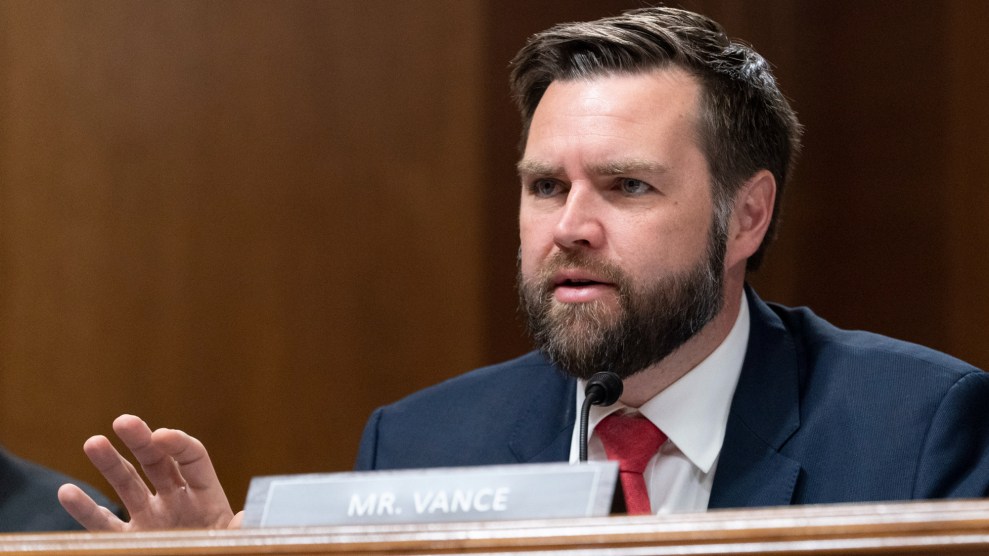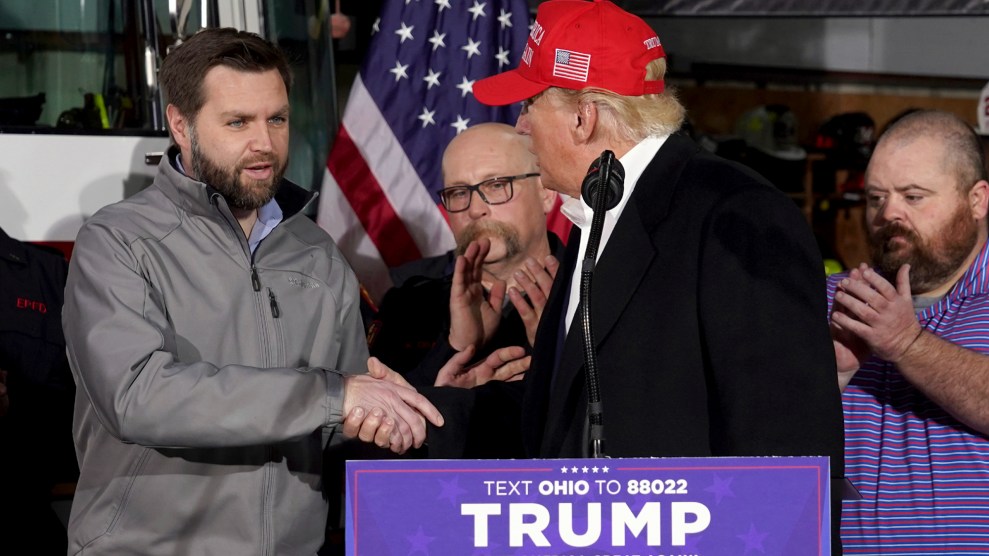
Senator J.D. Vance (R-Ohio)Jacquelyn Martin/AP
Update, June 15: In a statement sent after the publication of this article, Senator J.D. Vance’s office noted that Democratic Sen. Sherrod Brown called the changes made a “reasonable compromise.” This story has been updated to reflect Brown’s statement.
In his brief tenure, Sen. J.D. Vance (R-Ohio) has touted a signature piece of legislation to show his New Right bonafides: The Railway Safety Act of 2023. A bipartisan bill, co-authored with fellow Ohio Sen. Sherrod Brown, the legislation would implement new regulations in order to prevent another catastrophic train derailment like the one that occurred in East Palestine, Ohio in February. It’s something Joe Biden and Donald Trump can agree on. And, importantly, it’s theoretically Vance sticking to his word in looking to work on issues that affect the working-class Americans he feels have been left behind.
But there’s a hitch. A new report in Lever News today by Julia Rock says Vance watered down the bill at the behest of the chemical industry, who Vance receives donations from.
One of the new regulations in the bill was to upgrade tank cars that carry flammable chemicals so that they are less vulnerable to leaks and punctures if a train derails. In a previous version of the bill, the old tank cars were set to be phased out by 2025. But on May 10, Vance and Sen. Maria Cantwell (D-Washington) amended the bill to push back the adoption of safer tank cars until 2027 or 2028. The American Chemistry Council told Lever they had lobbied for a “realistic and workable timetable” for these upgrades. Sen. Brown called the changes a “reasonable compromise.”
“I think the agreement of 2027, again, is very good when we’re going up against historically one of the two or three most powerful interest groups in America,” Brown told Cleveland.com. “We’ve had success taking the railroad lobby on when they have been untouchable, and have had their way with Congress and the regulators for far too many years. Nobody thought we could get this far.”
Vance has not addressed this change directly. In a statement made in May after the bill passed the Senate Commerce Committee, he framed any concessions as proof of his deal-making acumen. “We’ve made a number of concessions to the rail industry, a number of concessions to various interest groups, which is why we have so much bipartisan support in this body, but also we have a lot of support from industry,” he said. This counters his huffing about how he’s taking on the railway industry.
As Vance attempts to remake the Republican Party from a business-friendly party into a working-class party, he’ll continue to run up against an issue: if given a chance, most congressional Republicans will side with business. In theory, the change from 2025 to 2027 or 2028 is just part of the process of deals made to pass legislation. But it’s interesting when you consider how Vance has staked his career on saying he is in the Senate to be a new kind of Republican.
“Do we do the bidding of a massive industry that is embedded with big government or do we do the bidding of the people who elected us to the Senate into the Congress in the first place?” Vance asked his fellow Republicans in March.
He may want to ask himself the same question.
You can read the full report from Lever here.

















